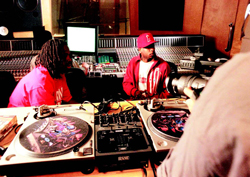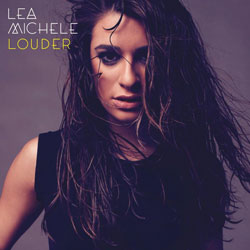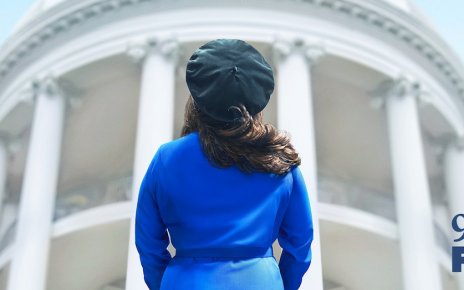The documentary Hip-Hop: Beyond Beats and Rhymes was screened on February 16 in Bey Hall’s H.R. Young Theater.
The event was hosted by Claude Taylor of the Communication Department and welcomed all University students and faculty to view the documentary and participate in a discussion.
The film screening was part of the University’s celebration of Black History Month, which continues to host events until the end of the month.
Directed by Bryon Hurt, the film thoroughly presented the deeper social issues that are apparent in hip-hop music, but often ignored. Within the opening moments of the documentary, film director and anti-violence activist Hurt identifies himself as a life-long hip-hop fan that is conflicted by the issues with the music he loves.
“The more I grew and the more I learned about sexism and violence and homophobia, the more those lyrics became unacceptable to me,” Hurt said in his introduction to the film, which premiered at the Sundance Film Festival in 2006.
Through interviews with hip-hop fans, rap artists, industry executives, and hip-hop culture experts, Hurt successfully exposes issues of masculinity, violence, representation of women, and homophobia within hip-hop music and the effect it has on society and, more specifically young black men.
Throughout the film, Hurt exposes that artists, corporate executives and record labels are a force in perpetuating a hip-hop culture that reinforces negative issues. The documentary included a series of interviews with artists including Busta Rhymes, Jadakiss and hip-hop mogul Russell Simmons, all who turn a blind eye to the negative effects of the issues in hip-hop songs, lyrics and music videos because it still sells.
The filmmaker successfully gives the audience realistic evidence of the effect of hip-hop culture on young men with the “BET Spring Bling,” a weeklong hip-hop spring break party in Miami, FL. Hip-hop fans and aspiring artists interviewed in the documentary claim that they identify with the hip-hop culture because the music relates to their backgrounds and struggles.
The documentary also showed the audience a different view when the same men interviewed were filmed sexually harassing women, fighting with each other to prove masculinity, and rapping about violence, weapons, and rape.
Taylor also led a discussion at the screening challenging all attendees of the event to reconsider the lyrics heard in rap music, regardless of one’s race, gender, and sexuality.
Taylor expressed interest in the opinions of University students concerning the issues in hip-hop. Admitting to be a fan of the music, he labeled rap as “the soundtrack of parties,” because it’s music to dance to. Taylor stated, “If you go to the bars and the clubs over on the West End, that’s the type of music you’re going to hear.”
Hip-Hop: Beyond Beats and Rhymes left the audience of last Thursday’s event with many topics to discuss and many things to consider when listening to hiphop music.
Senior Brian Morelli admits that although he’s not a big hip-hop fan, he still enjoys some of the music. However, he still raises questions about how a genre of music can have an image that sells.
“I’m in a heavy metal band and recently, before a show, one of my band members told me not to smile during the show because it’s not ‘metal,’” Morelli said, sharing his own experiences with images in music. “But as much as I speak against the ‘image,’ look at my hair,” Morelli added, pointing to his long black hair. “Why did I choose to grow it out?”
Other attendees shared their opinions concerning the image portrayed by hip-hop music including Skip Carey, Director of Disability Services. He said, “The movie gave me a glimpse into a world I know nothing about. I’ve heard the music, but I didn’t really pay attention to it; it was eye opening.”
PHOTO COURTESY of nbpc-online.com




